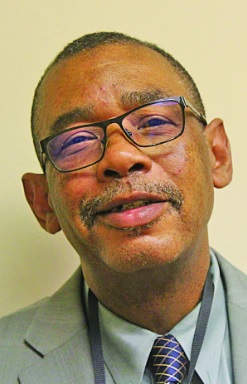By Hollis Wormsby, Jr.

A few days ago 18-year-old Masiya Turner was indicted for the 2016 murder of 55 year old Ronald Earl Brown. According to police reports at the time Brown was in his own home when Turner knocked on the door and shot him when he answered. Police said at the time that the shooter was looking for someone in the home. Fast forward to a few days ago, Turner was arrested and charged with capital murder and yet according to al.com his bond was still set at only $50,000. I have heard some folks comment, where will an 18-year-old get $5,000
for bail, but somehow these kinds of bails are made all of the time.
I am going to ask the same question I ask every time this kind of bail is granted, if four black youth can be held in Hoover without bail for the shooting death of one male adult during a robbery, why does a black child doing the same thing in Birmingham get to have his bail set at $50,000. The identity of the victim and the value that the justice puts on certain victims.
During this same week we saw a 17-year-old indicted for reckless endangerment for shooting five people, at a church fair, of all places also receive a bond of $50,000, in spite of shooting into a crowd at a church festival in an act of clearly senseless violence. His claim after the fact was that he was planning on firing a warning shot into the ground. Somehow the message has to be sent that this behavior is unacceptable and $50,000 bails are simply not sending that message.
I think what cases like these need is a special court open 24 hours a day that can have preliminary hearings immediately for these kinds of crimes. Where this special court finds probable cause that a violent crime has been committed they need special intervention powers. For first offenders for crimes that are not blatantly violent, this court could assign participating in court sponsored job training or alternatives schools as the intervention tool. So in this scenario, instead of being released to the same parent and neighborhood that failed to supervise you in the first place, we will change to requiring ankle monitoring for all charged with violent crime as a first offense. And in addition to ankle monitoring that basically only allows you to go to assigned job training or educational activities and home, have social service workers that work with these youth in this restricted environment to see if their lives can be turned around. I would also work to make these alternative facilities state of the art when it comes to behavioral intervention. As much as we may want to punish every offender, the reality in Birmingham is if we don’t find a way to save some of them we won’t have much of a city left anyway.
The other thing that ongoing crime stories blatantly highlight is the need to increase the skill sets of the low-income youth creating these kinds of crime. As you ride around our community and just listen to conversations you can see the need for improved educational outcomes.
But as you read the stories of crime and the backstories of the participants, a common sub-text is youth without high school educations and no marketable skills. That is a responsibility that should first be laid at the feet of the parents and then a responsibility we must accept collectively as a community challenge.
Finally, as altruistic as we might wish to be the bottom line is that we cannot save every youth in this community that has lost his way. As Richard Pryor said when asked about what he thought of some of the inmates he met while filming “Stir Crazy”, “I think some of them are where they need to be”, some of the youth raising hell in our communities are past the choir boy stage and are not going to stop what amounts to terrorizing our communities until they meet a greater power that insists they do. As a community, if we are to reduce the violence, it comes down to holding those who create violence more accountable and granting them fewer freedoms and more importantly it comes down to making sure we provide whatever support it is going to take to help low-income children in the early stages of education. It is said that if a child is not reading at grade level by the third grade there is a great chance they will never read at grade level. Ultimately not being able to read at grade level is the early trigger we need to address in trying to break this awful cycle of poverty and violence.
Or at least that’s the way I see it.
Hollis Wormsby has served as a featured columnist for the Birmingham Times for more than 27 years. He is the former host of Talkback on 98.7 KISS FM and of Real Talk on WAGG AM. If you would like to comment on this column you can go to Facebook.com/holliswormsby or email him at hjwormsby@aol.com.



